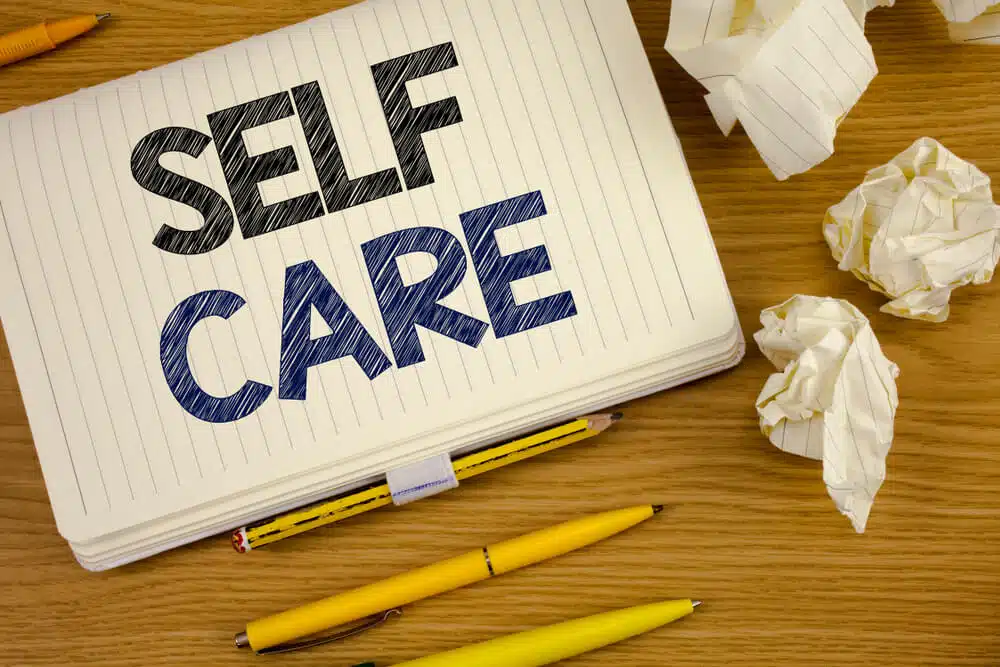
How Are You Protecting Your Mental Health?
Each day, we encourage those around us to practice self-care and take the time to look after their mental and emotional well-being. But how often do you take a moment to follow this advice? It can be easy to put aside our personal struggles and immerse ourselves in ensuring others are healthy. As friends, family members, students, and even in some cases, caretakers for a loved one, the health of others often comes before our own. Sometimes this happens because circumstances demand it does, but other times it happens because addressing our personal struggles is too much to manage. With the upcoming holiday season and the ever-changing dynamic of the world outside, now is an excellent time to take a moment and ask yourself what things you can do to protect your mental health. No matter what our age or responsibility (teens can struggle with stress and mental health difficulties equally as often as adults), it is essential, we do what we can to look after our mental health.
Take A Day to Care for Your Mental Health
When was the last time you suggested to a friend or loved one experiencing a stressful situation that they take a “mental health day?” When was the last time you took one for yourself? Most people will decide to stay at home if they are ill or injured. It is considered OK (and highly suggested) to take a couple of days to allow the body to heal when we are under the weather. However, when the subject in question is our mental health, we often do not afford ourselves the same courtesy. Unfortunately, the stigmas and misguided attitudes about mental health do not allow us to view emotional challenges, such as anxiety, stress, and depression in the same light as an illness like pneumonia or strep throat.
Many still believe mental health problems are something you can ignore that will get better in time when the opposite is true. Ignoring your mental health can lead to detrimental impacts on your physical health and your overall emotional well-being. Whether your mental health condition is a diagnosable illness or a situation of extreme stress, it is essential to recognize that taking time out to prevent escalating mental health symptoms is substantially healthier than attempting to control them after they have occurred. A mental health day can allow you the time to engage in self-care activities to help alleviate stress and bring you back to a healthy mental state. This “me” time can help to improve your memory, protect your immune system, improve your sleep, reduce stress, and in the end, improve the productivity of the day when you return to work or school.
Turn Off Before Turning In
Data from countless studies are available online that indicate watching television or interacting with technology just before turning in for the night is detrimental two your sleep. Every evening, thousands of people across the nation sit down after dinner, turn on the television and eventually fall asleep on the couch or grab their smartphones and retreat to their rooms to Netflix with friends. While there are a few problems with this, including the desire to stay up later to find out what happened next on your favorite show or the content of the show you are watching could contribute to tossing and turning as your mind replace the last activity it remembered. However, neither of these is the primary problem with watching television (including on your iPad or Facebook videos on your phone) right before bed. The biggest problem is television screens, computer screens, and cell phone screens emit light that keeps you awake. Our body clocks are naturally tuned to the sun’s rise and fall, producing melatonin as it begins to get dark outside. Melatonin stays present in your body throughout the night, helping you continue to sleep until the sun rises in the morning. The blue lights present on technological devices may trigger the brain to stop producing melatonin having a detrimental impact on your ability to get a healthy amount of sleep each night. Lights can also affect your ability to enter deeper states of sleep, resulting in reduced sleep quality and morning exhaustion. To protect your mental, physical, and emotional health, it is beneficial to tune off before turning in. Consider reading a book, writing in a journal, or talking with family members instead of tuning in to your favorite late-night shows.
Take Some “Me” Time
Aside from the mental health day mentioned above, try to carve out some time each day for you. Consider the things that you enjoy doing when you’re not at school or work. For example, what kinds of things would you do on a weekend getaway? Swimming, going for a walk, reading a book, lying in a hammock, and enjoying the outdoors? There are countless things people do when they take a moment to get away from their day-to-day life that they forget to do while they are home. These moments of enjoyment should be the rule and not the exception, even if only for a few minutes a day. Find alternate ways to accomplish your daily tasks and goals that allow you to include those activities you most enjoy. For example, instead of going to the gym this weekend, go for a walk in the park or take a hike. Take some time out of each evening to put your phone on do not disturb and make a conscious effort not to respond to emails, texts, or Instagram notifications instantaneously. Spend this time practicing self-care or enjoying some quiet time with your family. These moments can help you regain clarity and hopefully reduce some stress.
Eat A Balanced Diet
While food cannot cure or treat mental health symptoms such as depression and anxiety, a healthy balanced diet can help to increase energy levels throughout the day and improve your sleep at night. Increased energy can also help to improve your mood. So again, while food is not a treatment for mental health symptoms, it can help to ward off feelings of anxiety and depression that come from feeling tired, down, and just unhappy overall. Increased energy can help you exercise and participate in activities throughout the day that you may not have a chance to take advantage of when you are sleep deprived or when your mental health has taken a backseat to your day-to-day tasks. So, try to eliminate sugar and processed food from your diet whenever possible, fill your plate with whole foods, and consume nutritious snacks throughout the day. Also, if you find you (or if as a parent you notice your teen) are turning to drugs, alcohol, or other unhealthy coping strategies to dull feelings of stress and anxiety, it might be worth taking a closer look at the role drugs or alcohol play in your emotions and as a coping mechanism for a larger problem.
Talk to Someone- Even if You Do Not Think It’s Necessary
There is not an “appropriate” symptom level required to reach out for help with your mental health. Many people wait until they are struggling significantly before they contact a therapy provide such as Beachside. If your mood changes interfere with your daily life, or you find your symptoms are increasing, it is essential to talk to someone. Despite common misconceptions, therapy is not reserved for those with a clinical diagnosis. Mental health includes a wide range of issues, from general stress to severe mental illness. It is OK to put your mental health first and reach out to a therapist for a variety of emotions, including stress, unhappiness, or feelings related to poor performance in your relationships or career. Choosing to seek therapy is not a sign of weakness or failure.
Conversely, it shows strength and courage, and concern for your mental health. Also, reaching out for help during times of stress and anxiety is not an indicator of (or affirmation of) mental illness. Not everyone who seeks therapy has a diagnosed mental condition. Many people seek therapy merely to have a person, outside of the family or their circle of friends, to talk to. Unfortunately, family, significant others, and friends can sometimes be part of our stressors, and it is most beneficial to have a third party to help you address and work through these issues. For teens, it can sometimes be challenging to open up emotionally to family. This is also when it is highly beneficial for an outside person like a therapist at Beachside to help address the root causes of their emotions.
Mental health is vital to so many elements of our day to day lives. When our mental health suffers, so does our physical health and our ability to function properly throughout our day. It is unfortunate, so many mistakenly assume seeking therapy is anything other than proactively working to protect and maintain our mental health in the short and long term. At Beachside, we will work with your teen and family to develop a therapy plan to help them address the current issues they might be feeling. We will also help them learn safe and effective coping strategies to use when triggering events, people, or situations that present challenges to their mental health. Having these coping mechanisms to call upon can help ensure your teen can protect their mental health for the long-term. Also, we will work with your family to educate about mental health and how, as members of the family unit, everyone can work together to protect their individual mental health and that of their loved ones. If you believe talking to a therapist could help your teen learn new, safer ways to protect their mental health, contact us at Beachside today to ask how our programs may be able to help.
Resources
https://www.sciencedaily.com/releases/2009/06/090608071941.htm
https://www.sleep.org/is-it-bad-to-watch-tv-right-before-bed/




